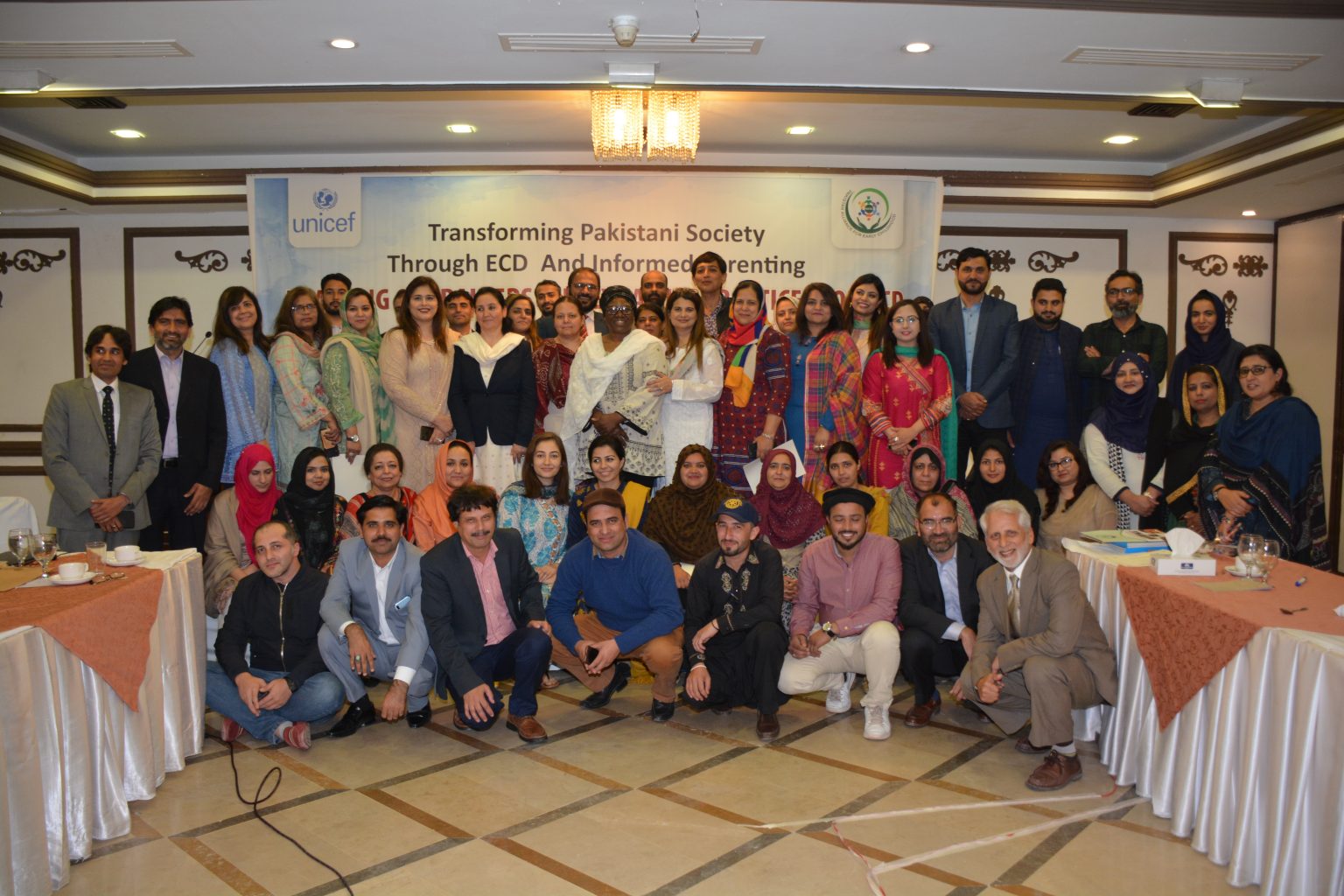
Key Family Care Practices
Transforming Pakistani Society through ECD & Informed Parenting Supported by UNICEF
UNICEF and PAFEC have agreed to collaborate and run a project that aims to transforming the society through the promotion of Early Childhood Development (ECD) and informed parenting. The core component of this project was to pilot the Parental Package for ECD and Key Family Care Practices developed by UNICEF. The pilot area constituted the twin cities of Islamabad and Rawalpindi.
The project design was inspired by the notion that awareness of ECD and promotion of Key Family Care Practices are central to transforming the society and to ensuring long term positive outcomes for the future generations. The project also reflects UNICEF and PAFEC’s strategic partnership and the latter’s commitment to involve various partners and broader communities including parents, caregivers, service providers and professionals in the due process.
PAFEC is utilising the resources and support provided by UNICEF to forge alliances and impart capacity building services of 20 implementing partners. With collaboration of implementing partners, the plans were to prepare a group of 50 master trainers on the Key Family Care Practices and ECD parental package, who will further train at least 750 frontline educators. At the grassroots, the frontline educators will establish connections and educate 15,000 parents and caregivers, 100 community influencers and 200 youth leaders to promote adherence to ECD knowledge and Key Family Care Practices, eventually benefiting around 30,000 children of 0 to 8 years of age.
Due to Covid-19 pandemic and the subsequent lockdown, it was not possible for the implementing partners to carry on with project activities as initially planned and anticipated. The pandemic created uncertain conditions. To cope with the situation, majority of the partners had opted to start online sessions for FLEs to train them of key family practices in April, these activities continued during May towards their completion. The training sessions are being conducted using internet-based platforms(Zoom).
As of April, 12 out of 20 partners had completed their planned trainings for FLEs using online media. In the month of May, another 2 partners (Rupani Foundation and United We Excel) started online training for the FLEs. In line with the plans described above, some of the partners have already completed the online FLE training sessions. They conducted 8 to 14 sessions to complete FLE trainings on 22 ECD family practices. So far 600 Frontline Educators (FLEs) have been trained by master trainers.
Read the full report: Key Family Care Practices (KFCP) – Supported by UNICEF